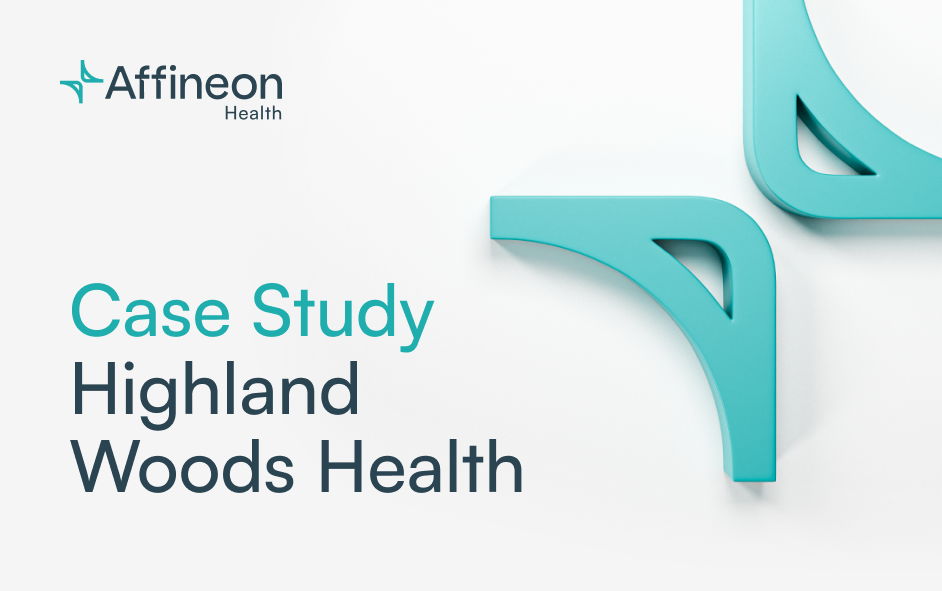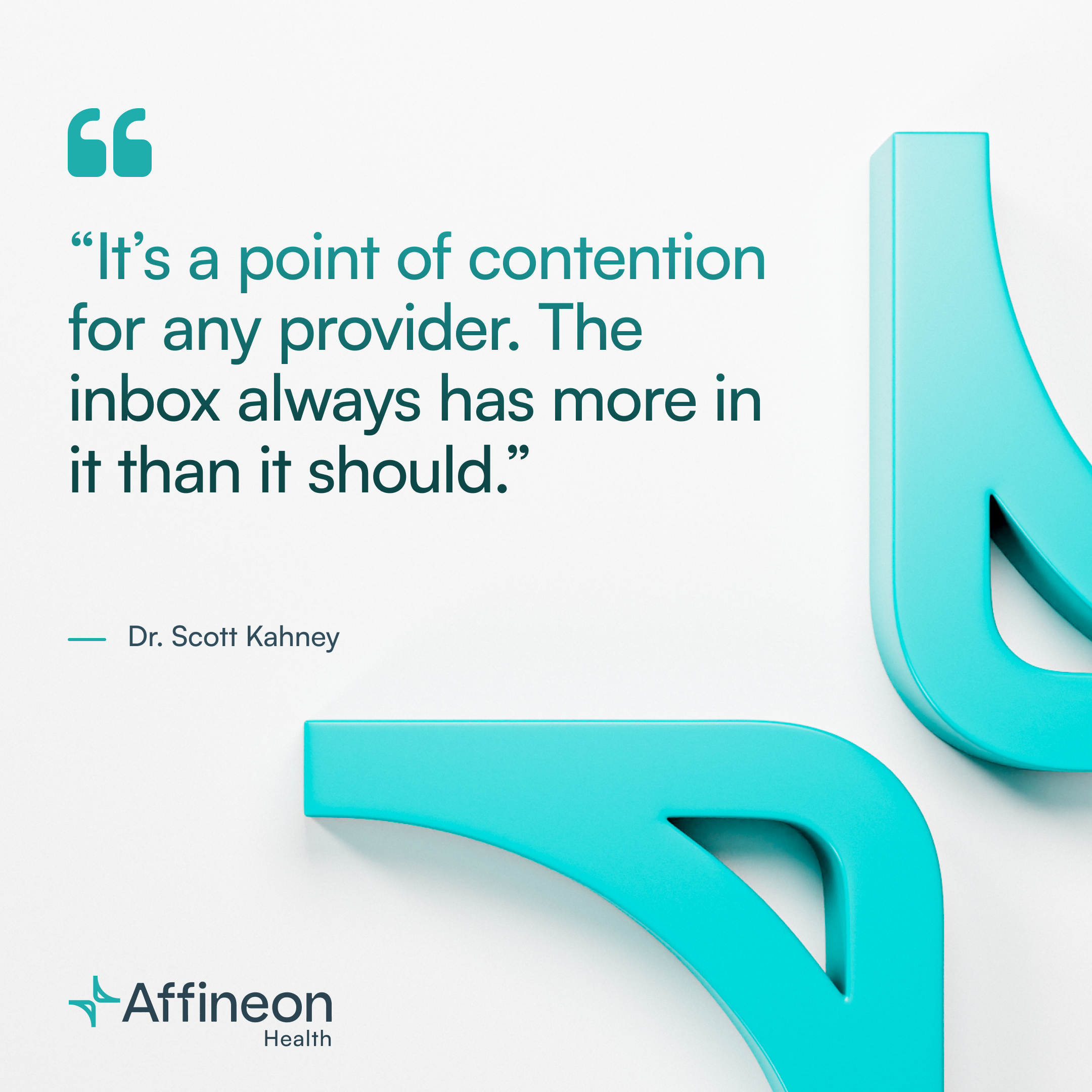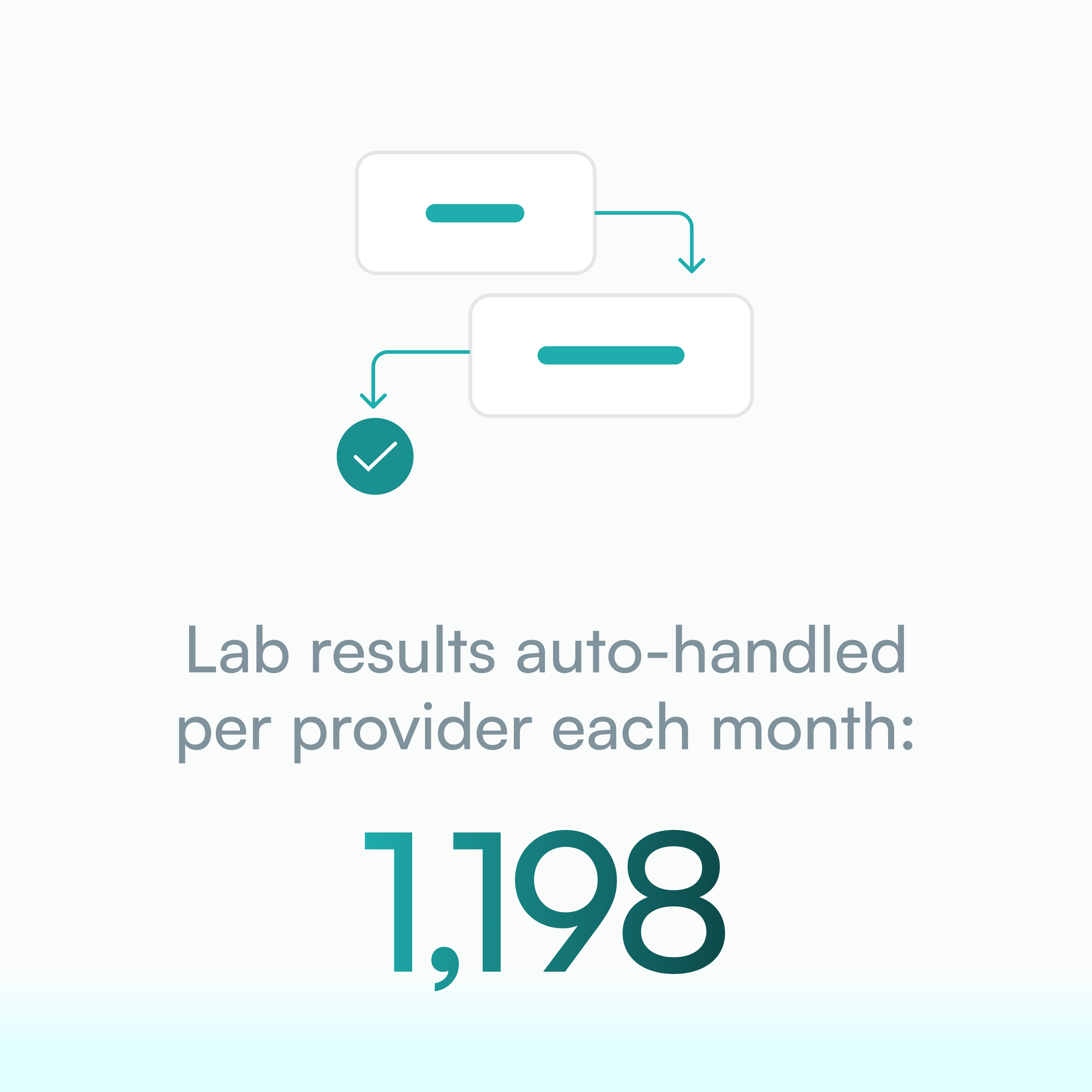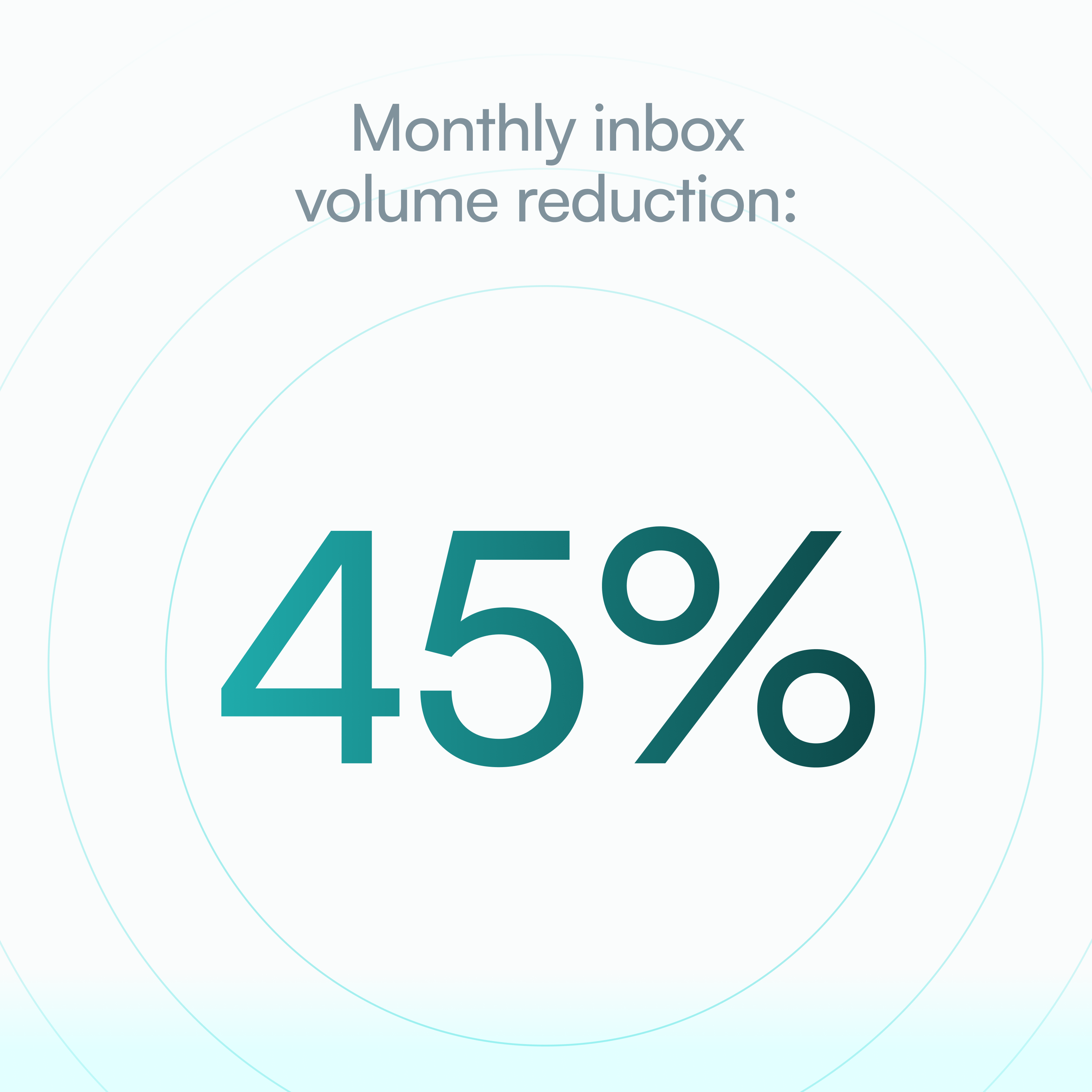Affineon Case Study: How Dr. Kahney Regained Control of His Inbox

Every clinician knows the weight of an inbox that never ends. For Dr. Scott Kahney and his colleagues at Highland Woods Health, the steady pull of administrative work was no different. Inbox tasks compounded and catching up often took days.

The problem: Endless lab reviews and mounting fatigue
Before Affineon, staying on top of the inbox meant building habits that weren’t sustainable. Dr. Kahney handled urgent messages quickly, but the steady flow of lab results was harder to manage.
Q: Was there a moment you thought things had to change?
Dr. Kahney:
“There are parts of my inbox that I manage very well. When a patient sends a message or something urgent comes in, I’m pretty prompt. Labs, though—that’s where things could drag. When I was good, I’d get to them the next day or two. Other times, they’d build up until the weekend. I’d developed a system to scan for higher-risk results and handle those first, but the rest would pile up.”
Q: How much time did you spend managing the inbox?
Dr. Kahney:
“The inbox means different things to different people. For me, it’s everything—office visits, patient messages, lab results, refills. I generally close out most of my visit notes right away, either in the room or right after, so the main challenge was always labs and refills. To stay on top of it, I’d need about an hour and a half a day. And by the end of most days, I didn’t have that in me. I’d end up spending five hours or more on Sunday afternoons catching up.”
With nine physicians and ten APPs across two offices, Highland Woods is one of the largest independent practices north of Houston. The workload wasn’t unreasonable—but it left little room to breathe.
The solution: A smarter way to manage labs
Q: How did you discover Affineon?
Dr Kahney:
“We were at a Privia Gulf Coast pod meeting, and one of the attendees mentioned some upcoming AI pilots that might help manage the inbox. I instantly got up and said, ‘Tell me about this.’ Later I followed up with Privia, and that’s how we got connected.”
The idea resonated—not because it sounded futuristic, but because it promised relief. Dr. Kahney continues,
“I’m intrigued by the idea of AI... in my world, anything that helps make the work easier is worth exploring. I’d listened to Athena’s chief medical officer talk about using technology to let physicians actually practice medicine instead of just being computer clickers. That was captivating. I’ve always been open to new endeavors, and this sounded pretty cool.”
He started with the lab module and began working closely with Affineon to tailor it to his workflow.
Q: How did implementation go?
Dr: Kahney:
“During my trial through Privia, we were still figuring out what worked for my workflow. Some of the analytes and clickless details didn’t fit how I review labs. But Affineon was great about tailoring it to my needs and helping make it much more useful.
One of the best parts of this process has been the back-and-forth—fine-tuning things almost in real time. The responsiveness has been stellar. I don’t know if that’s just because I was part of the beta group or if that’s your standard, but it’s been excellent.
After I started using it, we rolled it out to the other five owners. They made a few tweaks of their own, and everyone had a positive experience. Just today, we extended it to the rest of our twenty providers. It’s been great.”

Q: What was onboarding like?
Dr. Kahney:
“When we onboarded, my experience was a little different. I personally reviewed all the protocols—what’s considered clinically insignificant, what gets sent, and what doesn’t. I went in with some skepticism. The potential was exciting, but like many physicians, I’m pretty particular. I don’t ever want to miss something serious.
I went through everything carefully, and honestly, the vetting Affineon had already done was solid. There were only one or two things I didn’t fully agree with. The rest made sense. And any time I had feedback, Affineon moved fast. It wasn’t, ‘We’ll get to that next week.’ It was, ‘We’ll update that on Friday.’ The real-time responsiveness was impressive.”
The result: Inbox relief that lasts
Today, the inbox feels lighter—not because there’s less to do, but because it’s organized around what matters.
Q: How has managing your inbox changed since working with Affineon?
“There’s a lot less urgency now. I don’t know if ‘dread’ is the right word—I never dreaded it, it’s my job—but it’s much more manageable now. I used to get 40 or 50 labs a day, and staying on top of those took hours. If I skipped a day, I’d spend the weekend catching up. Now, the volume feels reasonable. If I don’t do it one day, I can do it the next and still stay ahead.
Before, a lot of the work was mindless. Most results were normal, and all I was doing was sending the same message—‘your labs are fine.’ Now I’m mostly seeing abnormal results that actually need my attention. It’s more meaningful work. It’s just a noticeable difference in the volume and the kind of thinking I do.”

Q: What’s been the most surprising part of this experience?
Dr: Kahney:
“The most surprising part for me has been how comfortable I’ve become with patient safety. That was my biggest concern at first—this sounded great, but was the benefit worth the risk? There’s always risk, even when you’re doing everything manually. But I haven’t seen any issues, and I feel confident that nothing’s being missed. That peace of mind has been a big deal for me.”
Q: If Affineon disappeared tomorrow, how would you feel?
Dr. Kahney:
“It’s made my inbox more manageable, and I’d be unhappy if it were taken away. When I first started, I told the other owners in my practice, ‘If the group doesn’t want to pay for it, I will.’ It’s that valuable to my personal life and mental well-being. There aren’t many add-ons I’d write a personal check for—but I’d write one for Affineon.”
For Dr. Kahney, the inbox no longer dictates the day or consumes his weekends. The time once spent catching up now belongs to patient care again.
“Most physicians just want to get back to practicing medicine. I don’t hate EHRs—they’re essential to caring for patients—but they should be a tool, not a burden. Affineon helps move things back in that direction. It takes some of that weight off and lets me focus on what matters: the actual practice of medicine.”
At Highland Woods, the inbox has finally quieted. The constant pull to catch up has eased, replaced by a steadier rhythm that leaves space for patient care. What began as a trial run has become part of how the practice operates each day.
For Dr. Kahney, the change brings medicine itself back into focus.
